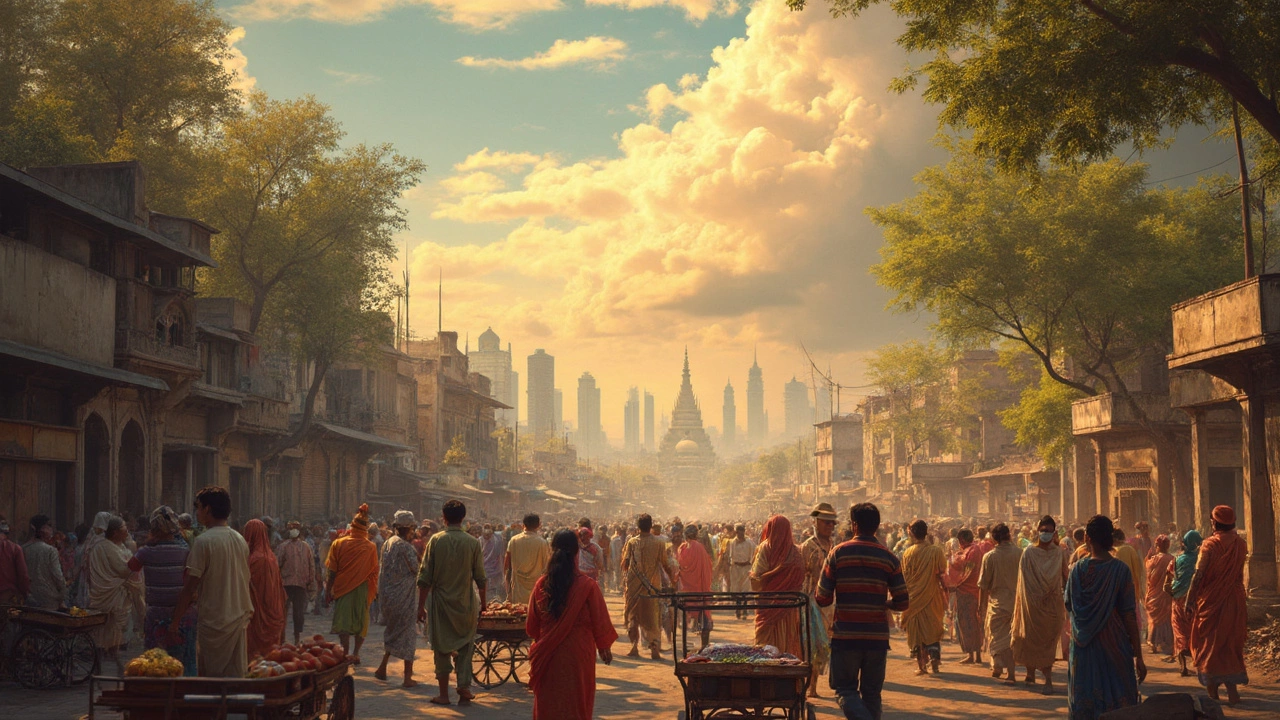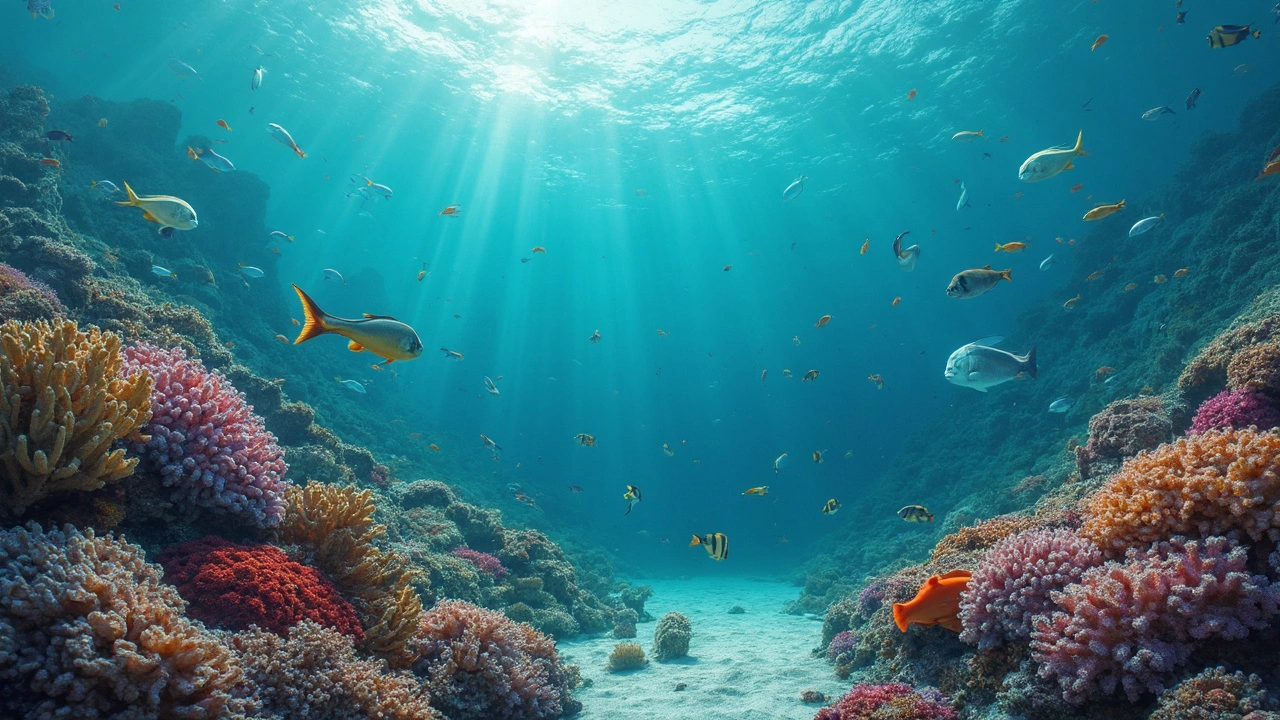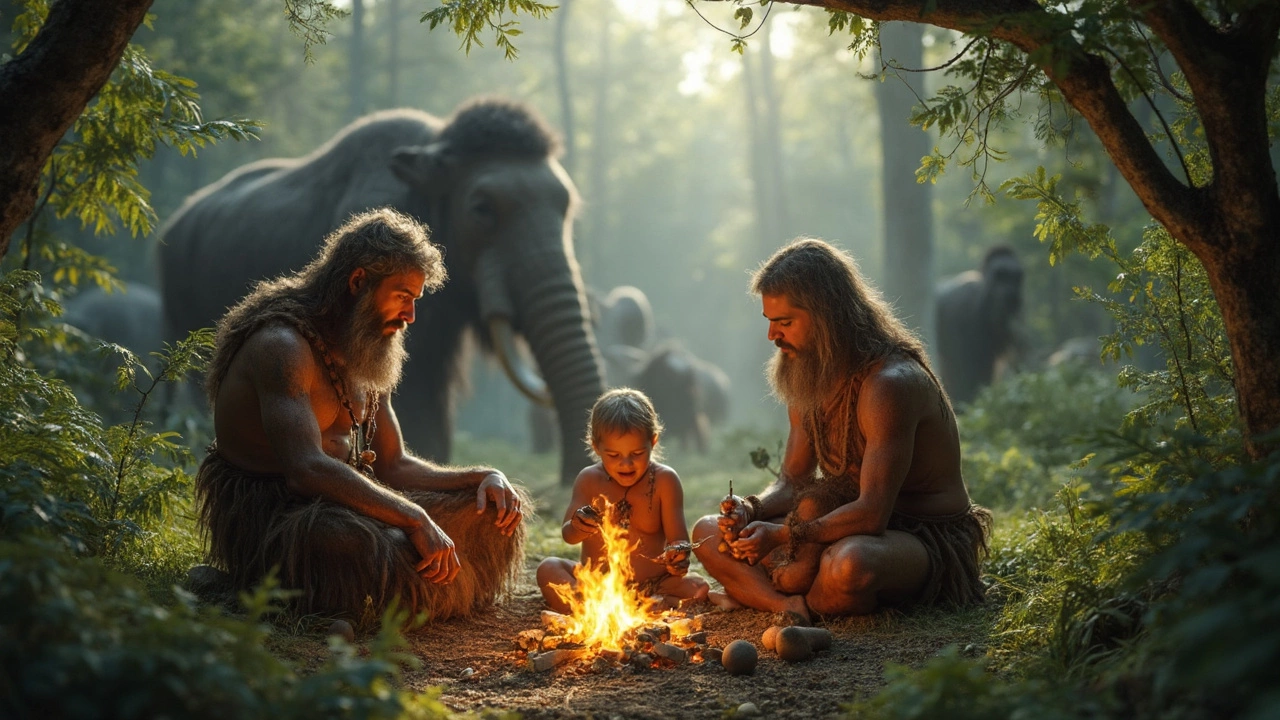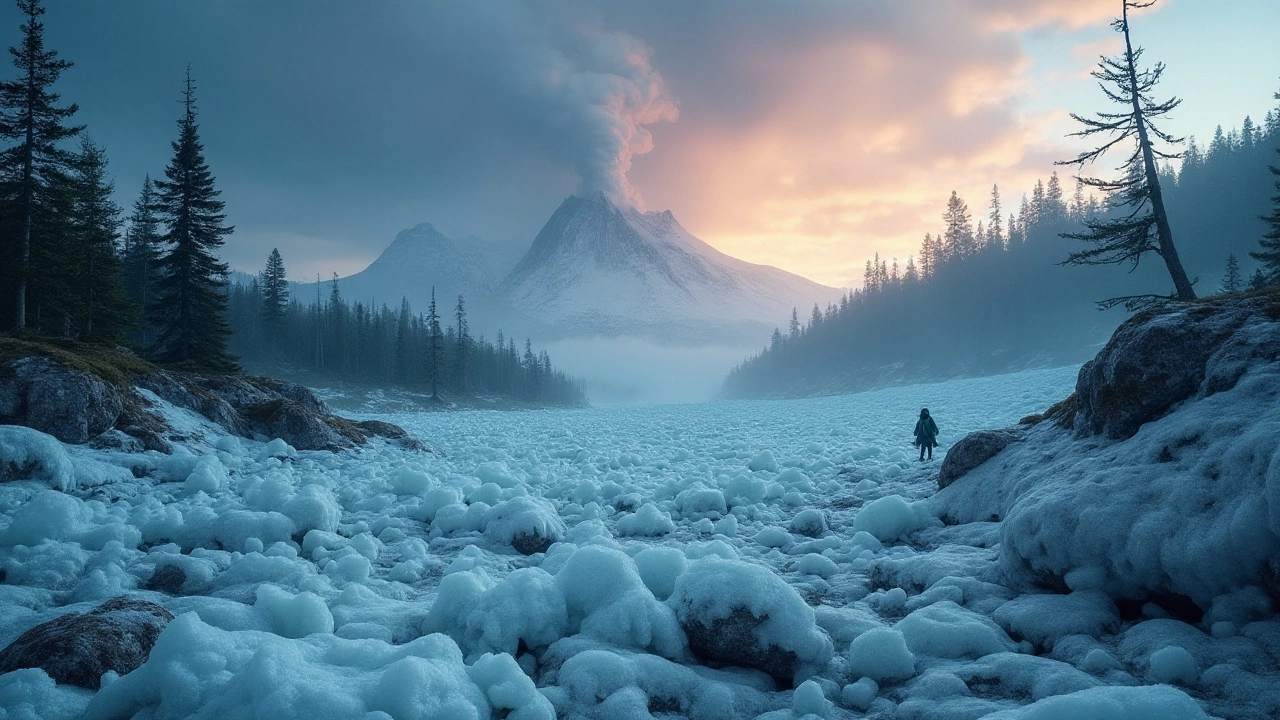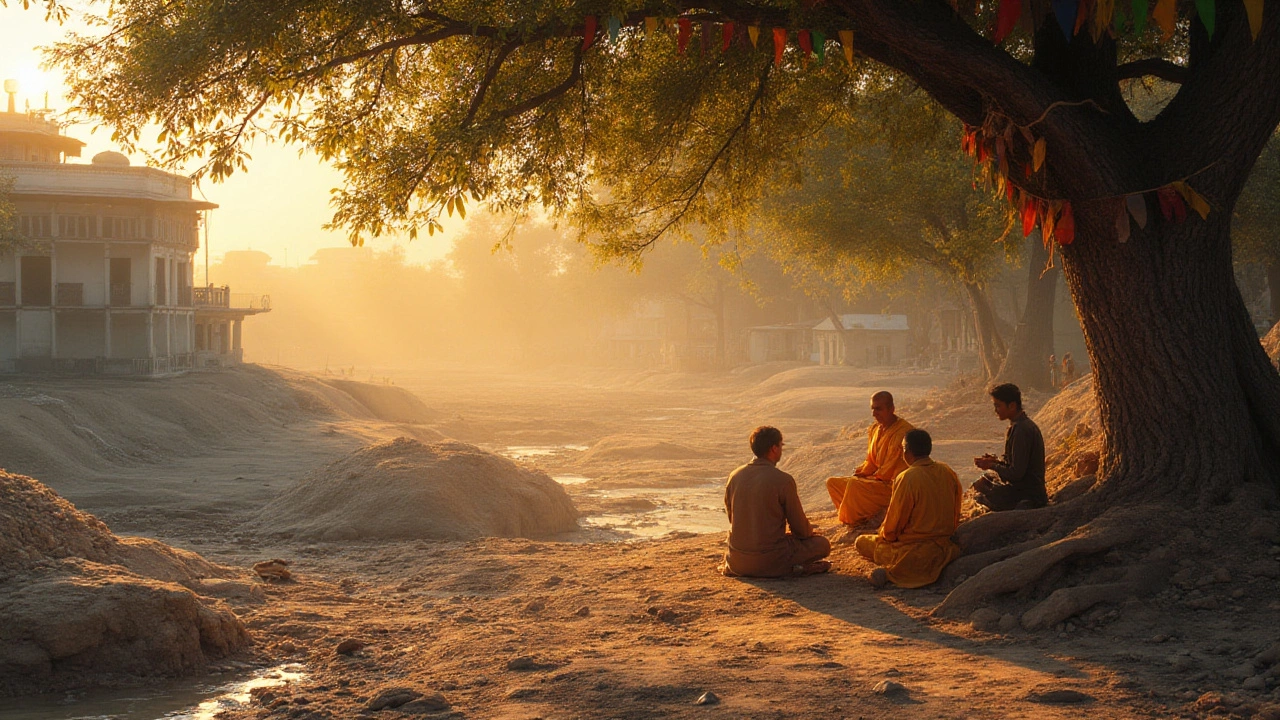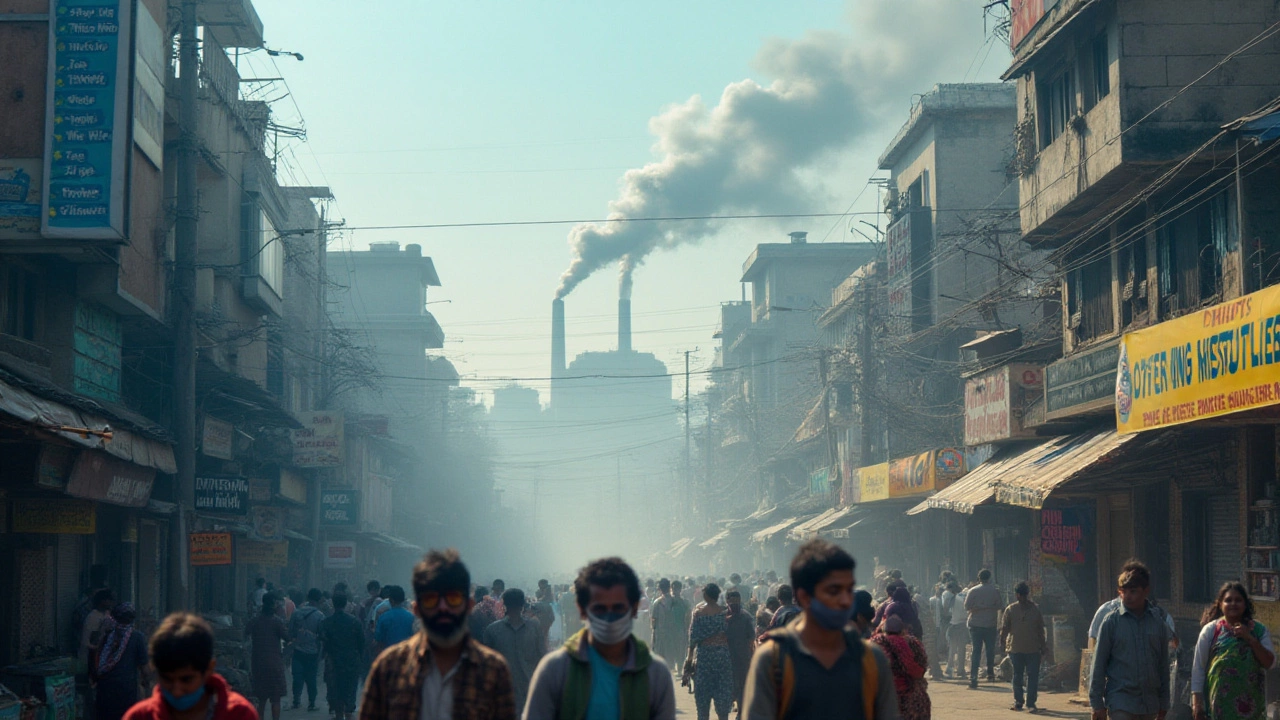Climate Change: What’s Really Happening and What You Can Do
When we talk about climate change, the long-term shift in global temperatures and weather patterns caused by human activity, especially the burning of fossil fuels. Also known as global warming, it’s not just about hotter summers—it’s about collapsing ice sheets, dead coral reefs, and crops failing in places that once fed millions. The planet has already warmed by about 1.2°C since the 1800s. That might sound small, but it’s enough to melt glaciers faster than they can rebuild, push sea levels up by over 8 inches, and make heatwaves deadly in places that never saw them before.
What’s often missed is how carbon removal, technologies and natural methods that pull CO₂ out of the air, like planting trees, using machines that capture carbon, or enhancing rock weathering is no longer optional—it’s becoming essential. Even if we stopped burning fossil fuels tomorrow, the heat we’ve already trapped would keep warming the planet for decades. That’s why scientists now say we need both rapid emissions cuts and active carbon removal to avoid the worst outcomes. Meanwhile, climate tipping points, critical thresholds where small changes trigger massive, irreversible shifts, like the collapse of the West Antarctic ice sheet or the die-off of the Amazon rainforest are no longer theoretical. Some may already be crossing them.
You won’t find a single fix—no magic bullet, no one policy that solves it all. But you will find real progress: solar panels now cheaper than coal in most countries, farmers in India using AI to cut water waste by 40%, cities building green roofs to cool down, and communities demanding cleaner air. The science is clear: we can’t undo what’s already happened, but we can still stop it from getting worse. The next ten years matter more than the last forty.
Below, you’ll find honest, no-fluff breakdowns of what’s working, what’s not, and what’s coming next. From the truth about carbon capture startups to how heat stress could make parts of the world uninhabitable by 2100, these posts cut through the noise. No hype. No fearmongering. Just what the data says—and what you can actually do about it.
Will the Earth Be Uninhabitable by 2070? A Realistic Look at the Next 45 Years
Apr, 29 2025
Will the Earth really become unlivable by 2070? This article digs into the facts, the scary headlines, and what climate research is actually saying about our future. We’ll break down the science, look at which places are most at risk, and what can still be done to keep parts of the world comfortable for humans. Get real tips for prepping and protecting yourself and your community as the climate heats up. Whether you’re worried or just curious, you’ll get answers that actually matter.
Read Article→Biggest Threats to Ocean Life from Climate Change
Mar, 17 2025
Ocean life faces significant threats from climate change, with rising temperatures and acidification leading to the destruction of marine habitats. Melting ice caps, increased sea levels, and pollution further exacerbate these challenges. Understanding and addressing these issues is crucial to preserving the biodiversity of our oceans.
Read Article→Caveman Parenting: When did Early Humans Start Families?
Feb, 14 2025
Exploring the age at which cavemen began having children offers fascinating insights into early human life and survival strategies. Long before modern conveniences, survival skills and child-rearing played crucial roles. These ancient parenting ages might seem surprising compared to today. As climate and environments shifted, so did their survival tactics and reproductive ages, providing lessons relevant even now.
Read Article→Understanding Ice Age Triggers: Climate Change Insights
Jan, 29 2025
Delving into what caused the Ice Age, this article examines how shifts in Earth's environment led to significant cooling periods. By exploring natural factors like volcanic activity, ocean currents, and Earth's orbit changes, it seeks to understand these ancient climate shifts. The article also connects past events with modern climate concerns, offering insights into how ancient data can inform current climate models. It is a thoughtful exploration into the frozen epochs of Earth’s history and the scientific quest to unravel their causes.
Read Article→Exploring Key Research Questions in Climate Change
Jan, 22 2025
Climate change remains one of the most pressing challenges of our time, prompting scientists and researchers to delve into numerous questions. Understanding the impact on ecological systems, assessing mitigation strategies, and examining socio-economic consequences are crucial aspects of this research. Investigating the efficacy of potential solutions also remains pivotal. This article explores five essential research questions about climate change designed to enhance our understanding and drive impactful action.
Read Article→Top 3 Pressing Environmental Issues of 2025: Understanding Climate Challenges
Jan, 12 2025
As we find ourselves in 2025, understanding the urgent environmental challenges becomes crucial. The top environmental issues include climate change, pollution, and deforestation, each threatening ecosystems and human livelihoods. Climate change intensifies natural disasters and affects global food security, while pollution impacts air and water quality. Deforestation leads to habitat loss and exacerbates greenhouse gas emissions. Addressing these issues through sustainable practices is essential for ensuring a healthier planet.
Read Article→